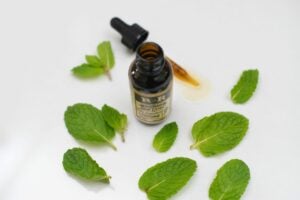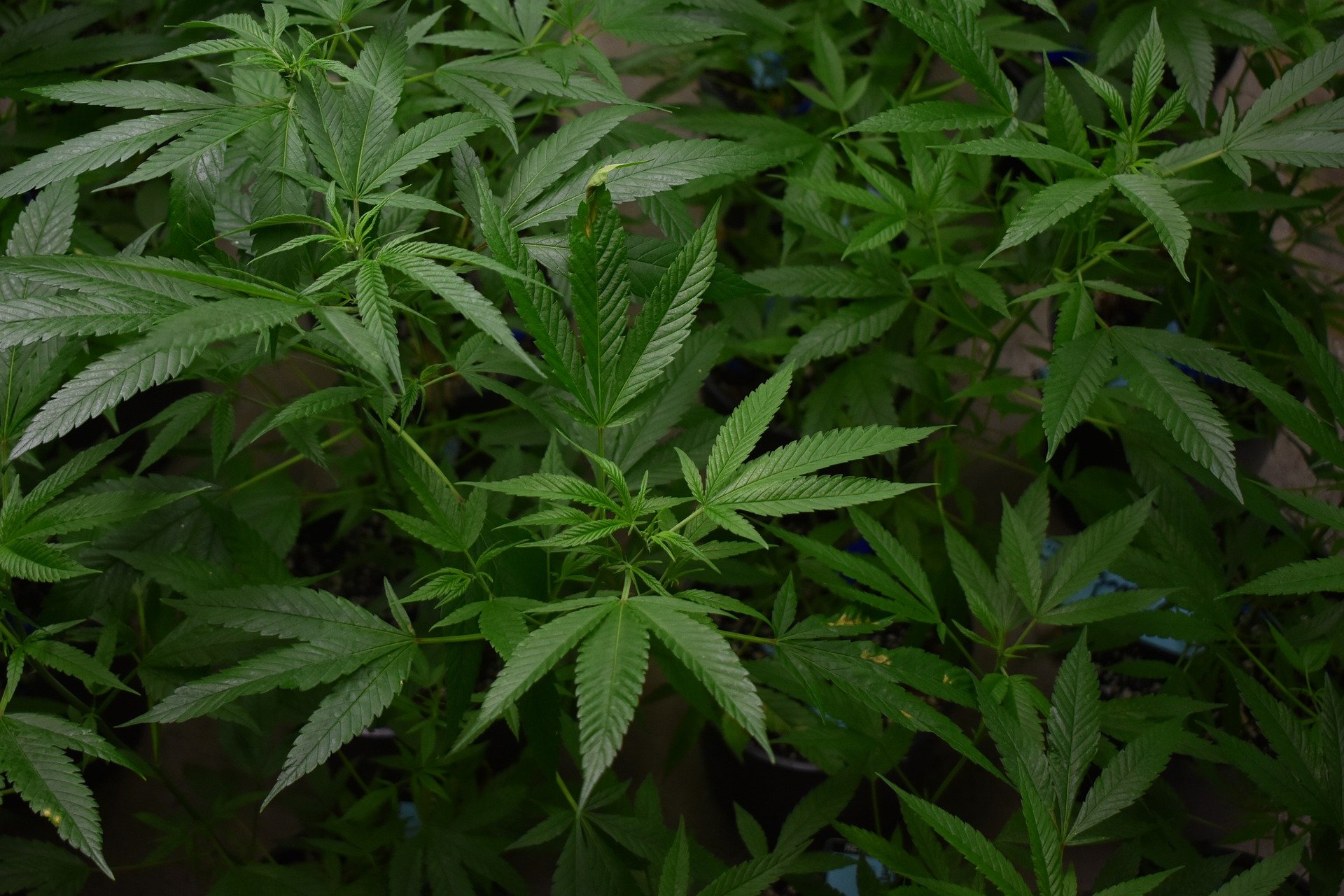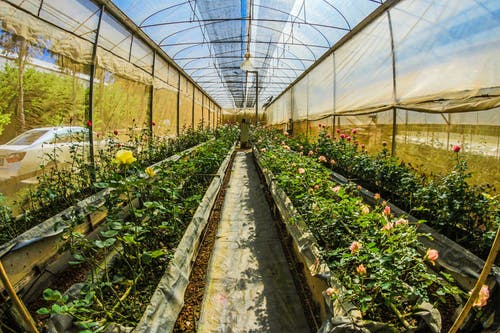Medicinal cannabis is rapidly transforming how we approach healthcare in Australia. Increased acceptance and research have led to its therapeutic use, creating a dynamic market for both domestic and international players. Understanding the intricacies of this industry is essential for those looking to import or export medicinal cannabis.
The legal framework governing medicinal cannabis is complex, comprising federal, state, and territory regulations. Each level of government enforces specific rules that impact cultivation, manufacturing, and distribution. Importers and exporters must navigate this landscape to ensure compliance and avoid legal pitfalls.
This article explores the key considerations for importing and exporting medicinal cannabis in Australia. It covers regulations, cultivation practices, manufacturing standards, and potential investment opportunities, providing valuable insights for industry stakeholders.
Legal Framework of Medicinal Cannabis
Medicinal cannabis in Australia is subject to regulations at both the federal and state/territory levels. These regulations ensure the safe cultivation, manufacture, and distribution of cannabis products for medical purposes. At the federal level, the Narcotic Drugs Act 1967 and the Therapeutic Goods Act 1989 set the standards for these activities. Compliance is crucial for anyone involved in the medicinal cannabis industry, from licensure to the final supply chain.

Federal Regulations
The Australian government regulates medicinal cannabis through key federal legislation. The Narcotic Drugs Act 1967 and the Therapeutic Goods Act 1989 oversee the cultivation, manufacturing, and supply of medicinal cannabis. The Customs Act 1901 governs the import and export of cannabis, ensuring compliance with international obligations. Cannabis products fall under the Poisons Standard, categorized as Schedule 8 or Schedule 9, depending on their intended medical or research use. Organizations must obtain relevant licences from state authorities to legally supply these controlled substances.
State Regulations
Each state and territory in Australia has distinct regulations for medicinal cannabis. These regulations dictate the prescription and possession process for Schedule 8 medicines, a category that includes most medicinal cannabis products. A prescription from a local medical practitioner is often necessary. In states like Tasmania, additional conditions apply for cannabidiol products, sometimes classified under Schedule 4. Importers must familiarize themselves with state laws to ensure compliance and avoid legal issues.
Territory Regulations
Territory regulations in Australia echo the complexity seen at the national level, with specific requirements varying widely. Local Medicines and Poisons Acts, informed by the national Poisons Standard, delineate the rules for accessing medicinal cannabis. For example, Tasmania may mandate extra steps for cannabidiol access that differ from federal guidelines. Anyone planning to transport medicinal cannabis into Australia must consult their local health department to understand and comply with both national and territorial legal mandates.
Cultivation of Medicinal Cannabis
The cultivation of cannabis plants for medicinal purposes in Australia is tightly regulated. The Office of Drug Control (ODC) administers these regulations under the Narcotic Drugs Act 1967. To grow cannabis legally for medicinal use, individuals or businesses must obtain a medicinal cannabis licence (MCL). This licence is essential for those aiming to produce cannabis resin and flower commercially. Cultivation involves steps up to, but not including, the harvest of the cannabis plant. Production starts with the harvest and includes resin extraction and preparation of cannabis products for manufacture or research. Applicants for an MCL must show their intention to supply cannabis to a holder of a medicinal cannabis manufacturing licence. Additionally, they must adhere to strict security protocols. The national licensing provisions override conflicting state or territory laws, except where preserved by regulation.
Licenses Required
To import medicinal cannabis into Australia, importers need both a licence and a permit from the ODC. These licences are valid for up to 12 months. In Western Australia, medicinal cannabis licences include wholesaler’s/manufacturer’s licences, indent licences, and Schedule 9 licences. These are issued by the WA Department of Health under the Medicines and Poisons Act 2014. Each shipment of medicinal cannabis products requires an Import Permit along with an Import Licence for drugs. License applicants must prove they are “fit and proper” and possess sufficient knowledge and resources. In Victoria, exporters must secure both a licence and a permit from the ODC, with products listed on the Australian Register of Therapeutic Goods.
Best Practices for Cultivation
In Victoria, acquiring both an MCL and a medicinal cannabis permit (MCP) from the ODC is mandatory for cultivation. The process includes sowing seeds, growing, and tending the plants before harvest. Production involves separating cannabis resin from the plants. Compliance with ODC security requirements is critical for cultivation activities. Applicants should demonstrate their cultivation is intended for supply to a medicinal cannabis manufacture licence holder. Cultivation sites can grow and dry plant material without GMP approval if a GMP-licensed manufacturer will process them further.
Manufacturing Processes
Imported cannabis flowers must undergo specific manufacturing processes at sites approved for Good Manufacturing Practice (GMP). This approval ensures compliance with quality requirements for the final product. The manufacturing procedures, such as decontamination through irradiation, are essential to reduce microbial load, ensuring the safety of medicinal cannabis products.

Each medicinal cannabis product must be processed and inspected individually at facilities with EU GMP certification. This guarantees the pharmaceutical quality of the product. In Australia, only cannabis extracts produced under an Office of Drug Control (ODC) manufacturing license or finished products made under a Therapeutic Goods Administration (TGA) license can be exported. Export of raw cannabis biomass is not allowed.
To manufacture extracts or tinctures from cannabis flowers or resin, license holders must possess both a medicinal cannabis manufacture license (MCML) and a medicinal cannabis manufacture permit (MCMP).
Good Manufacturing Practice (GMP) Standards
Manufacturers of medicinal cannabis products in Australia must comply with GMP standards as mandated by the Therapeutic Goods Administration (TGA). GMP ensures product quality and safety during the manufacturing process. As of July 2023, all imported medicinal cannabis products in Australia must present evidence of production under GMP standards, affecting all manufacturing steps outside the country.
An exception exists for the GMP requirement for imported products used as starting material in the manufacture of another compliant medicinal product. GMP certification, like that achieved by Tilray under the European Medicines Agency’s standards, is crucial. It builds trust with regulators and healthcare providers regarding the safety of medicinal cannabis products.
To operate, manufacturers in Australia must secure a GMP licence along with other regulatory permits from authorities like the Office of Drug Control (ODC).
Quality Control and Testing
The Therapeutic Goods Administration (TGA) requires that all imported medicinal cannabis products provide evidence of production under GMP as of July 2023, adhering to specific standards outlined in Therapeutic Goods Order 93 (TGO 93). These standards pertain to the microbiological and contaminant levels within the products.
Important data reveals that approximately 30% of medicinal cannabis imports from Canada do not match the labeled active ingredient strength. Additionally, up to 20% of overseas-grown material might contain microbiological contaminants, posing health risks.
Under GMP principles, manufacturers must have procedures to record, assess, investigate, and review complaints related to medicinal cannabis products supplied to Australian patients. The release for supply (RFS) represents the final step in manufacturing. It ensures that production batches are certified to meet applicable regulations and marketing authorizations.
Tilray was the first medical cannabis producer in North America to receive certification under the European Medicines Agency’s GMP standards. This certification ensures that their products meet rigorous safety and quality benchmarks necessary for international distribution.
Regulatory Pathways
Navigating the regulatory pathways for importing and exporting medicinal cannabis in Australia involves several key steps and compliance requirements. Understanding these pathways ensures that medicinal cannabis adheres to Australian laws and meets the needs of patients effectively. Below, we detail the primary avenues for legal medicinal cannabis transactions in Victoria.
Special Access Scheme (SAS)
The Special Access Scheme (SAS) permits the importation of medicinal cannabis for patients not part of a clinical trial. This process is regulated by the Therapeutic Goods Administration (TGA) under strict conditions. Medicinal cannabis products can only be supplied following TGA regulations for unregistered therapeutic goods.
To import medicinal cannabis through the SAS pathway, medical practitioners must be licensed under relevant legislation. The SAS ensures access to medicinal cannabis when conventional treatments have proven ineffective.
Importation under SAS involves compliance with stringent regulations. Products are classified as Schedule 8 or Schedule 4 medicines, determined by their THC content.
Key Features of the SAS:
- Patient Eligibility: Not involved in clinical trials.
- Regulation: Governed by TGA for unregistered goods.
- Practitioner Licensing: Required for importation.
- Product Classification: Schedule 8 or Schedule 4.
The SAS framework is crucial for providing access to medicinal cannabis, offering a regulated pathway for patients needing alternative therapeutic options.
Authorized Prescriber (AP) Pathway
The Authorised Prescriber (AP) Scheme in Australia permits health practitioners to prescribe medicinal cannabis to patients with specific health needs. Under the AP pathway, general practitioners can begin treatment for most patients. However, specialists are required to prescribe for those with a history of drug dependency or for children and young adults.
Key Points:
- Approval: Each patient needs authorisation from the Department of Health for individual treatment.
- Regulation: The AP pathway ensures that access to medicinal cannabis is safe and medically supervised.
- Documentation: Application processes and prescribing guidelines are included in the Schedule 8 Medicines Prescribing Code.
This framework promotes responsible prescribing and ensures that medicinal cannabis is used effectively for therapeutic benefits. The regulated approach aims to protect patient health and maintain the credibility of medical practitioners in the field.
Importing Medicinal Cannabis
Importing medicinal cannabis into Australia involves stringent regulations to ensure controlled access and safe use. The process requires strict adherence to legal guidelines and maintaining compliance with both domestic and international drug control conventions.
Licensing Requirements for Importers
To import medicinal cannabis, importers must obtain an Import Licence and specific Import Permits for every shipment. These are mandated by the Customs (Prohibited Imports) Regulations 1956. Only delta-9-tetrahydrocannabinol (THC) is permitted for import, while other THC isomers are prohibited. Importation is strictly for medical or scientific purposes only. Applicants must provide detailed documents, including prescriptions and product details. Medicinal cannabis can be imported only from countries where its use is legalized and regulated. The Therapeutic Goods Administration (TGA) maintains a list of approved manufacturers abroad.
Compliance with Customs Regulations
Compliance with the Customs (Prohibited Imports) Regulation 1956 is vital for importing medicinal cannabis. Importers need licenses and permits issued by the Office of Drug Control (ODC). Before importing into Victoria or any state, a valid import licence and permit from the ODC are required. The products intended for import must be listed on the Australian Register of Therapeutic Goods. Importers must declare product information and quantities in their licence application. Quantities are strictly controlled under international laws to ensure legal and safe distribution.
Exporting Medicinal Cannabis
Overview of Australia’s Cannabis Export Market
In February 2018, Australia legalized the export of medicinal cannabis products through new regulations. This development followed the 2016 legalization of cannabis for medicinal and research purposes. Initially, only cannabis oils, sprays, patches, lozenges, and tablets could be exported. Amendments in 2020 expanded this to include cannabis plant products. All exports must comply with the Narcotic Drugs Act 1967, requiring a license and permit from the Office of Drug Control (ODC). Exporters also need to be registered under the Australian Therapeutic Goods Register.
The market for imported medical cannabis in Australia is on the rise. Imports increased from 1,139 kilograms in 2018 to 9,710 kilograms in 2022. The main import sources include Canada, Israel, Lesotho, and Portugal. Major Canadian companies such as Aurora Cannabis, Canopy Growth, and Tilray are significant players.
Licensing for Exporters
Exporters of medicinal cannabis in Australia must have the appropriate licensing. An export license is granted only if the exporter holds a cultivation, production, or manufacture license that allows for export. Additionally, a state or territory government wholesale license is necessary. Existing ODC license holders must apply for a license variation to export, which involves a fee. Each export consignment requires an additional permit from the ODC, obtained after the export license. Each country’s import laws are critical; exports are not permitted if the destination country prohibits them. Products must meet Australian classification and regulatory standards, including Therapeutic Goods Administration (TGA) testing and approval.

International Market Considerations
Australia’s federal and state laws regulate medicinal cannabis import and export. Significant legislation includes the Narcotic Drugs Act 1967 and the Therapeutic Goods Act 1989, which govern cultivation, supply, and trade. The Australian government supports domestic manufacturers by allowing exports while ensuring local patient supply. Importing medicinal cannabis requires specific ODC licenses and permits. It is restricted to medical and scientific purposes, with quantities regulated under international drug control conventions. International competition is growing, as countries like Canada aim to expand exports due to increasingly saturated domestic markets and better margins abroad.
Overview of Australia’s Cannabis Export Market
Australia’s cannabis export market has seen significant growth since 2018. Initially, only cannabis oils, sprays, patches, lozenges, and tablets gained approval for export. However, in 2020, amendments allowed the exportation of cannabis plant products.
Exports must comply with the Narcotic Drugs Act 1967. Exporters require both a license and permit from the Office of Drug Control. Additionally, products must be listed on the Australian Register of Therapeutic Goods.
Australia’s strict requirements ensure high-quality medicinal cannabis reaches international markets. The growing industry opens opportunities for Australian businesses in the medicinal cannabis industry.
Key Points:
- Legal Exports: Oils, sprays, lozenges, tablets, and cannabis plant products
- Regulatory Body: Office of Drug Control
- Legislation: Narcotic Drugs Act 1967
- Listing Requirement: Australian Register of Therapeutic Goods
Australia’s cannabis export market continues to expand, improving its reputable standing within the international community. This growth reflects a commitment to providing quality medicinal cannabis products globally.
Industry Standards and Compliance
The importation of medicinal cannabis into Australia is regulated by strict industry standards. Adherence to the Therapeutic Goods Order 93 (TGO 93) is mandatory for any medicinal cannabis entering the country. TGO 93 enforces compliance with Good Manufacturing Practice (GMP) standards for all products, regardless of their origin. Importers must secure a valid Medicinal Cannabis License (MCML) and meet all applicable state or territory laws for supplying these products.
When exporting medicinal cannabis from Australia, the products must be listed on the Australian Register of Therapeutic Goods. Exporters also need an Export Permit from the relevant authority. For companies exporting from Thailand to Australia, compliance with Thai export laws, including obtaining necessary cultivation or production licenses from the Thai Ministry of Public Health, is crucial.
Quality Standards for Medicinal Products
Quality standards for medicinal cannabis products are rigorously monitored. Importers must meet the Therapeutic Goods Administration’s (TGA) requirements, demonstrating evidence of production under GMP standards. The Australian finished goods manufacturer ensures all medicinal cannabis materials meet the quality and regulatory benchmarks set under TGO 93. Products must address specific microbiological quality criteria and limits on contaminants, such as heavy metals and pesticides.
Imported medicinal cannabis products often face scrutiny due to discrepancies in active ingredient potency compared to labeled claims. This highlights the importance of adhering to GMP guidelines, with least leniency offered for unrefined starting materials.
Safety and Efficacy Requirements
Ensuring the safety and efficacy of medicinal cannabis products is paramount. Medical practitioners must provide documented effectiveness for conditions treated, to secure government approval for prescriptions. Informed patient consent is strongly advised, especially with unapproved medicinal cannabis products, because of the limited safety and efficacy data available.
All imported medicinal cannabis products must comply with TGA’s guidelines for quality and safety before entering Australia. Products from Thailand must also meet GMP standards and receive Thai FDA approval to ensure safety in export offerings. As Schedule 8 substances, these products in Australia are subject to strict storage and prescription regulations due to their controlled nature.
Quality Standards for Medicinal Products
Medicinal cannabis products imported into Australia must adhere to the stringent requirements set by the Therapeutic Goods Administration’s (TGA). These products must demonstrate compliance with Good Manufacturing Practice (GMP) standards. The responsibility for quality assurance lies with the Australian finished goods manufacturer, which must ensure compliance with the TGA’s TGO 93 standards.
The TGA outlines specific standards for microbiological quality and contaminants, such as heavy metals and pesticides. Imported products must meet these criteria, with exemptions granted only for unrefined starting materials. A significant concern in imports is the discrepancy between the listed and actual active ingredient potency, which signals potential quality issues.
Key Compliance Areas:
- Good Manufacturing Practice (GMP): Adherence required for all imported products.
- Quality Assurance: Responsibility of Australian manufacturers.
- Contaminant Control: TGA sets limits for heavy metals and pesticides.
- Label Potency Accuracy: Ensures the active ingredient matches the label.
The focus on rigorous standards helps protect Australian patients by ensuring they receive safe and effective medicinal cannabis products.
Safety and Efficacy Requirements
Safety and efficacy requirements for medicinal cannabis in Australia are stringent. Medical practitioners must provide evidence demonstrating the effectiveness of medicinal cannabis for specific conditions to secure government prescription approval. Informed patient consent is strongly recommended before using unapproved medicinal cannabis products due to limited safety and efficacy data.
Imported medicinal cannabis products must comply with Australian quality and safety standards as outlined by the Therapeutic Goods Administration (TGA). Compliance ensures the products meet necessary criteria before legal importation. Products exported from Thailand must adhere to Good Manufacturing Practices (GMP) and receive approval from the Thai FDA for safety and compliance.
All medicinal cannabis products in Australia classified as Schedule 8 substances face strict storage and prescription regulations. This classification recognizes their controlled nature and ensures secure handling.
Key Requirements Summary:
- Evidence: Proof of medicinal cannabis effectiveness.
- Consent: Informed patient consent for unapproved products.
- TGA Compliance: Mandatory quality and safety standards.
- GMP Standards: Required for exports from Thailand.
- Regulations: Schedule 8 storage and prescription protocols.
These protocols are in place to maintain safety for Australian patients and ensure the medicinal cannabis industry adheres to high standards.
Legislative Changes Impacting the Industry
Recent Developments in Legislation
The Export Control Legislation Amendment (Certification of Narcotic Exports) Act 2020 supports Australian producers by legitimizing the export of medicinal cannabis and low-THC hemp products. This move enhances export opportunities and competitiveness in international markets. Australia’s regulatory framework comprises the Narcotic Drugs Act 1967 and the Therapeutic Goods Act 1989, which govern the cultivation, manufacture, and supply of medicinal cannabis products at the federal level.
State and territory Medicines and Poisons Acts align with the federal legislation to regulate access to medicinal cannabis effectively. Additionally, as of February 2018, amendments made under the Narcotic Drugs Amendment (Cannabis) Regulations 2018 legalized the export of medicinal cannabis following an announcement by the federal health minister.
The Australian government continues to refine regulations, ensuring a fair environment for domestic manufacturers while maintaining a steady supply of medicinal cannabis products for patients. A critical component in exporting cannabis plants now includes obtaining a phytosanitary certificate, a government certification provided by the Department of Agriculture, Water and the Environment.
Implications for Importers and Exporters
Importers and exporters of cannabis products in Australia must adhere to strict licensing protocols. The Customs (Prohibited Imports) Regulations 1956 and Customs (Prohibited Exports) Regulations 1958 outline the requirements for obtaining necessary licenses and permits. Importers must prove their capability and ensure secure storage facilities to qualify for an Import Licence.
Before acquiring an Import Licence, it’s essential for importers to confirm that their export counterpart holds relevant licenses or approvals to export medicinal cannabis to Australia. Exporters must comply with the Narcotic Drugs Act, acquire an export licence from the Office of Drug Control, and obtain a permit for each specific export consignment.
Exporting unapproved medicinal cannabis is tightly regulated. Such products listed for export-only cannot be supplied within Australia, ensuring all distributed products meet regulatory standards for patient safety and compliance.
Recent Developments in Legislation
The export of medicinal cannabis products from Australia became legal in February 2018. This legalization followed the Narcotic Drugs Amendment (Cannabis) Regulations 2018. The federal health minister had first announced this change in January 2018.
Medicinal cannabis in Australia is regulated at both federal and state/territory levels. Two main acts govern these regulations: the Narcotic Drugs Act 1967 and the Therapeutic Goods Act 1989.
As of July 2023, imported medicinal cannabis products in Australia must align with Good Manufacturing Practice (GMP) regulations. This ensures the quality and safety of products for Australian patients.
The Therapeutic Goods Administration (TGA) oversees these regulations. They maintain the Poisons Standard, which classifies medicines and poisons into various schedules. The classifications control the degree of availability and regulation of these substances.
The Australian federal government is dedicated to supporting the domestic medicinal cannabis market. Their goal is to maintain a consistent product supply while expanding exports. This strategy aims to boost competitiveness and foster growth in the medicinal cannabis industry.
Investment Opportunities
The Australian medicinal cannabis market is rapidly expanding, providing new investment avenues. In 2021, the market was valued at approximately USD 51.8 million. Experts project a compound annual growth rate (CAGR) of 30.1% from 2022 to 2030. The recent approval for exporting medicinal cannabis products will strengthen the domestic supply chain. This development, supported by government initiatives, is expected to enhance market growth and profitability.
Moreover, 44 companies currently hold manufacturing licenses for medicinal cannabis in Australia. This number reflects a competitive and burgeoning sector. As the industry grows, the government continues to facilitate export opportunities.
The global context provides additional perspective on the Australian market’s potential:
- The global medical cannabis market is projected to grow from USD 17.60 billion in 2023 to USD 121.33 billion by 2033, at a CAGR of 21.30%.
- In Australia, the legal cannabis market is anticipated to reach USD 828.2 million by 2033, growing at a CAGR of 30.1% from 2023 to 2033.
Market Size and Growth
The Australian medicinal cannabis market has shown remarkable expansion in recent years:
- In 2023, the market size was estimated at USD 93.54 million.
- Projections indicate a compound annual growth rate (CAGR) of 33.6% from 2024 to 20301.
- By 2030, the market is expected to reach USD 860.74 million.
This growth trajectory significantly outpaces previous estimates, demonstrating the rapidly evolving nature of the industry.
Investment Opportunities
The sector continues to present attractive investment prospects:
- As of 2021, 39 organizations were licensed to extract and purify raw cannabis materials for medicinal purposes in Australia.
- By 2030, it’s estimated that approximately 188,000 kg of dried plant matter will be produced annually.
- Under a baseline scenario, demand could reach approximately 79,000 kg of dried plant matter by 2030, potentially serving around 670,000 patients.
The recent approval for exporting medicinal cannabis products is expected to further strengthen the domestic supply chain and enhance market growth.
Risks and Challenges in Investment
Investing in the Australian medicinal cannabis market presents several challenges. Regulatory hurdles complicate the import and export processes. High production costs pose additional challenges, making it difficult to compete with imported products.
Investors also face limited access to capital, which hinders market entry. Quality control remains a significant concern; around 30% of Canadian imports do not match the advertised strength of active ingredients. This discrepancy poses risks for both patients and investors.
Transparency issues continue to plague the industry, prompting calls for stricter regulations on advertising and sales. Potential investors must weigh these risks carefully against the market’s growth potential.
We can help you get started
At Biz Latin Hub, we operate across Latin America and the South Pacific for all your back-office and consulting needs for cannabis business. With a team of leading experts in cannabis operating across these regions, we can help you and your company successfully expand into an emerging cannabis market.
Contact us here to learn more about this opportunity and get personalized assistance.





